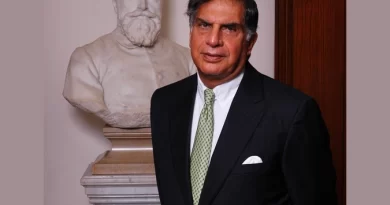Plantations at Doongerwadi & Ambawadi
Dr. Rashneh N. Pardiwala has been undertaking native tree plantation drives at Doongerwadi & Ambawadi since the year 2015 in order to revive and restore the health of the forest at Doongerwadi with the support of BPP. Only Indian native plant tree species are selected for plantations with 3-4 year old saplings with a minimum height of 4-6 feet. Healthy well-rooted saplings with lateral branching are chosen to ensure to ensure a survival rate of 98.20%. To-date, 7,092 trees have been painstakingly planted at Doongerwadi and Ambawadi. More than 50 species of flowering and fruiting forest species like Jarul, Bahava, Sawar, Saptparni, Jamun, Sandalwood, Ber, Bael, Phanas, Beheda, Bibba, Palas, Raktchandan, Chandan, Saag, Shisam etc have been planted to ensure a mixed healthy plantation. This plantation of 7092 trees also serve as an important carbon sink for the city and every effort is taken to ensure 100% survival with day-to-day maintenance and care. A total of 7092 native trees have the potential to sequester 1,567 MTCO2 over a short span of only 15 years and will sequester many more tons of carbon pollution through their lifespan of growth. In 2015, Dr. Pardiwala started planting native trees in Ambawadi on her own personal initiative, time, effort and resources. A total of 1477 trees were planted in the first year and slowly her passion to continue afforesting Doongerwadi grew and she continues working silently to help green one of last green lungs of South Mumbai. Her genuine voluntary efforts over the past 5 years has gradually gained the support of BPP Trustees, sponsors such as Mrs. Persis Vatcha of the Bai Maneckbai P. B. Jeejeebhoy Trust Funds and even community members namely Mr. Vispy Dalal and Mr. Firdosh Anklesaria who have extended support to this noble initiative. Individuals like Mr. Vispy Dalal and others are now gradually coming forth to start helping Dr. Pardiwala manage different aspects of the project and lend a helping hand. Rashneh is an ecologist from the University of Edinburgh having specialized during her MSc and PhD in the field of Climate Change. She is the Founder & Director of the Centre for Environmental Research and Education (CERE), a Mumbai-based not-for-profit organization that works to promote environmental sustainability through formal education, government collaborations, corporate partnerships and public awareness campaigns. CERE undertakes CSR projects for a range of leading companies such as Wipro, HDFC Ltd, IndusInd Bank, Tata Capital, Toyota Motors, SP Group, BNP Paribas and many others. Dr. Pardiwala presently serves as a Director on the Board of Studies, St. Xavier’s College, Mumbai and is a Subject Expert for numerous educational foundations and charitable trusts. In 2005, Dr. Pardiwala was recognized as one of the youngest ‘Social Entrepreneur for Change’ and was awarded the Ashoka Fellowship. In 2009 Dr. Pardiwala was selected as one of Asia’s 21 Young Leaders by Asia Society. In 2011, Rashneh was selected by the Svenska Institute in Stockholm for Fellowship program on Corporate Responsibility and Sustainability. In 2013, Dr. Pardiwala was awarded the Ford Fellowship to study at Columbia University, NY. It important that the Parsee community unites to actively conserve and manage the forests of Doongerwadi in a professional manner like our forests in national parks and sanctuaries. Every year, many trees fall due to gusty winds and heavy downpours during the monsoon season. In the monsoon of 2020, more than 80 large old trees collapsed due to the Cyclone Nisarga and torrential rains which even led to a major landslide on the road flanking Doongerwadi from Hanging Gardens to Kemps Corner. This unforeseen natural calamity with falling trees destroyed property, damaged parked cars, broke water pipelines and flattened young plantations, leaving BPP and Dr. Pardiwala no option but to take necessary action. Trees are living beings, have a natural lifespan and require proactive maintenance. The overgrowth of weeds and climbers can restrict the growth of young saplings. Termite infested fallen trees need to be cut and removed to make space for re-planting younger saplings and restore ecological balance. Forestry techniques like thinning, lateral branch pruning, opening up of a closed canopy, removal of invasive and exotic species, organic mulching etc. need to be practiced, as and when required, so as to improve the health of our Doongerwadi forest which is under tremendous stress in a highly polluted urban city like Mumbai. A healthy and diverse ecosystem is slowly emerging because of regular tree plantation drives during monsoon and year round maintenance that is resulting in increased floral and faunal biodiversity. The community needs to support the efforts of BPP and Dr. Pardiwala to help revitalize the forests of Doongerwadi. The thousands of young saplings planted today will grow into tall and strong trees of tomorrow to serve the coming generations of Parsee’s. Dr. Pardiwala hopes that her efforts to rejuvenate one of the most historical and religious places situated in Mumbai is wholeheartedly supported by the community since Doongerwadi serves both the community and the city by providing vital ecological services that helps improve the city’s environment.




